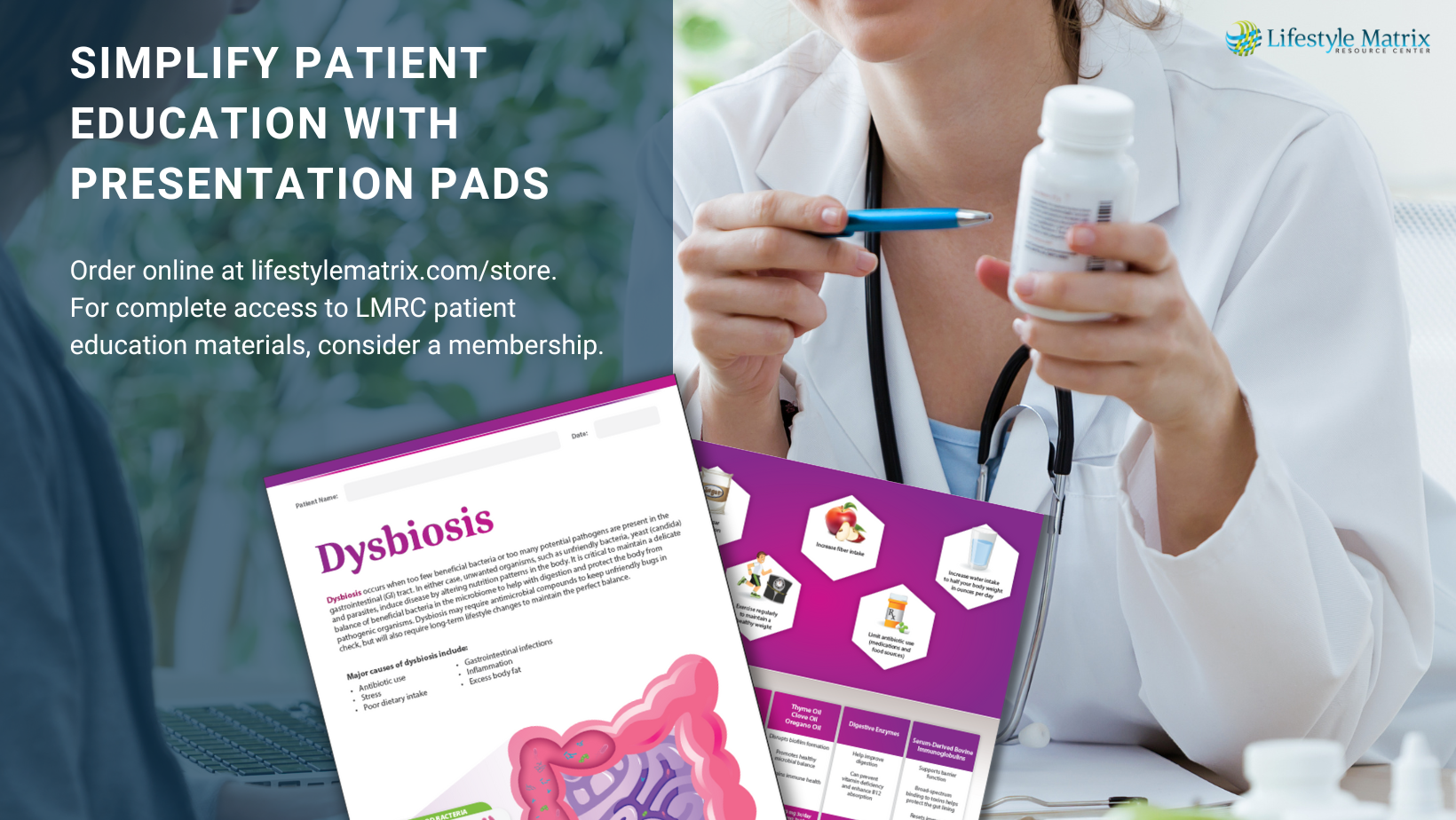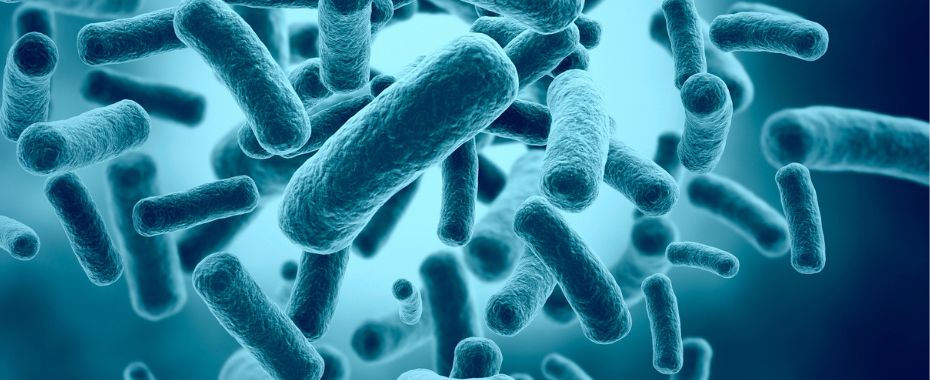As a practitioner in the functional medicine community, you know there are many types of probiotics to choose from for your patients. It may even be overwhelming at times and leave you guessing which options are best for different purposes. Although probiotics
have been commercially available since the 1950s, growing research over the past 20 years on spore-forming bacteria has increased their popularity by shedding light on key advantages they have over traditional probiotic bacteria, like Lactobacillus
and Bifidobacterium, in certain patient types.
1. Better Stability and Survivability
Spore-based probiotics have a longer shelf life, do not require refrigeration and provide greater stability than many traditional probiotics in their raw form.
Although traditional probiotic supplements are undoubtedly great for many applications, some strains of Lactobacillus and Bifidobacterium may not reach the gut microbiome alive unless protected by a delayed-release capsule. Without this added protection,
the harsh digestive environment, which includes stomach acids, bile salts and enzymes, can kill them before they provide the microbiome with the desired probiotic effect.
Spore-based probiotics naturally have these protective factors, allowing them to survive in these environments with their tough, armor-like endospore shell.1 Also, because they are dormant within their shell when ingested, they have enhanced
survivability against the digestive process and may even be more tolerable for some individuals with sensitive guts.
2. Prolonged Transit Time
When spore-forming probiotics reach the favorable, nutrient-rich environment in the small intestine, they emerge from their endospore shell and transform into their active vegetative state. As active probiotics, they have a long life cycle and slowly
colonize the GI tract. Spore-forming probiotics also have a longer transit time of about three to four weeks compared to traditional probiotics, which normally have a transit time of four to seven days.2 This allows spore-based probiotics
to have a more sustained probiotic effect in the gut, and they can be taken in smaller doses over time.
3. Concentrated Action
Slow transit and colonization time allows active spore-based probiotics to make good use of quorum sensing to group together, communicate, and produce enzymes and other active compounds that deter unwanted organisms.3 This concentrated action
gently pushes non-resident and potentially pathogenic bacteria out of the way, helping to restore proper microbial diversity and rebalance the gut microbiome so beneficial bacteria can thrive again.
Spore-forming probiotics also provide the same benefits as most other probiotics, like producing vital nutrients, such as short-chain fatty acids, vitamins, antioxidants, and other compounds that nurture the gut lining and re-establish the gut terrain.4,5
4. Targeted Impact
The unique action of spores “coming alive” at about the time they reach the distal small intestine results in a more targeted probiotic. This is particularly useful to help get rid of small intestinal bacterial overgrowth (SIBO) and reduce
the likelihood of it coming back (i.e., SIBO relapse is very common).
Also, spore-forming bacteria are not commensal to the gut. This is ideal for SIBO applications because they leave the small intestine when they are done doing their job as a probiotic and are less likely to contribute to any bacterial overgrowth that
may be occurring in the first place. In addition, research shows that spore-forming probiotics produce better outcomes for SIBO-type patients than traditional probiotics, like Lactobacillus, or a low-FODMAP diet.6
Alongside their targeted effect on microbial composition, spore-based probiotics have a profound effect on intestinal permeability. Recent research suggests that symptoms associated with dietary endotoxemia were significantly reduced with spore-based
probiotic supplementation. Also, intestinal permeability markers revealed a reduction in the amount of serum endotoxins and serum triglycerides with spore-based probiotics.7

The Bottom Line
A closer look at the mechanism of action of spore-forming bacteria in the gut reveals some advantages for targeted probiotic supplementation. Although they are not a one-size-fits-all solution, spore-based probiotics should have a place alongside
traditional options in your practice, providing your patients with a complete probiotic spectrum for comprehensive gut care.

Joseph Ornelas, PhD, DC is the Pillars of GI Health Brand Manager at Lifestyle Matrix Resource Center. He holds a PhD from University of Illinois with concentration in Health Economics, an MA degree in Public Policy from the Harris School
at the University of Chicago, an MS degree in Health Systems Management from Rush University, and a DC degree from National University of Health Sciences. As a licensed provider and health economist, Dr. Ornelas has published numerous evidence-based
clinical practice guidelines, helping to improve quality standards of care and provide value for health care practitioners across several specialty areas.
References
1. Bader J, Albin A, Stahl U. Spore-forming bacteria and their utilisation as probiotics. Benef Microbes. 2012 Mar 1;3(1):67-75. doi: 10.3920/BM2011.0039. PMID: 22348911.
2. Bernardeau M, Lehtinen MJ, Forssten SD, Nurminen P. Importance of the gastrointestinal life cycle of Bacillus for probiotic functionality. J Food Sci Technol. 2017;54(8):2570-2584. doi:10.1007/s13197-017-2688-3
3. Dong YH, Wang LH, Xu JL, Zhang HB, Zhang XF, Zhang LH. Quenching quorum-sensing-dependent bacterial infection by an N-acyl homoserine lactonase. Nature. 2001 Jun 14;411(6839):813-7. doi: 10.1038/35081101. PMID: 11459062.
4. Elshaghabee FMF, Rokana N, Gulhane RD, Sharma C, Panwar H. Bacillus As Potential Probiotics: Status, Concerns, and Future Perspectives. Front Microbiol. 2017;8:1490. Published 2017 Aug 10. doi:10.3389/fmicb.2017.01490
5. Duc le H, Hong HA, Barbosa TM, Henriques AO, Cutting SM. Characterization of Bacillus probiotics available for human use. Appl Environ Microbiol. 2004 Apr;70(4):2161-71. doi: 10.1128/AEM.70.4.2161-2171.2004. PMID: 15066809; PMCID: PMC383048.
6. Catinean A, Neag AM, Nita A, Buzea M, Buzoianu AD. Bacillus spp. Spores-A Promising Treatment Option for Patients with Irritable Bowel Syndrome. Nutrients. 2019 Aug 21;11(9):1968. doi: 10.3390/nu11091968. PMID: 31438618; PMCID: PMC6770835.
7. McFarlin BK, Henning AL, Bowman EM, Gary MA, Carbajal KM. Oral spore-based probiotic supplementation was associated with reduced incidence of post-prandial dietary endotoxin, triglycerides, and disease risk biomarkers. World J Gastrointest Pathophysiol.
2017 Aug 15;8(3):117-126. doi: 10.4291/wjgp.v8.i3.117. PMID: 28868181; PMCID: PMC5561432.





